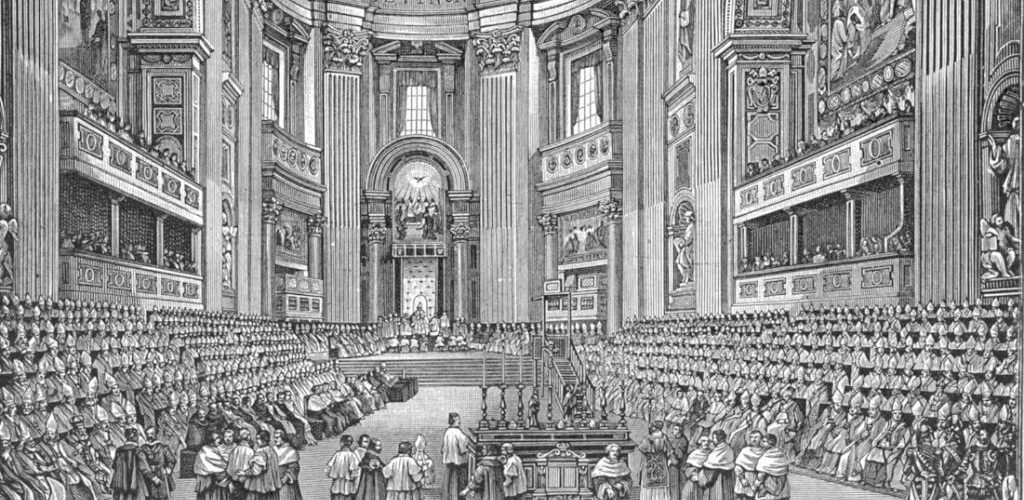Now that Pope Francis has gone to the House of the Father, it is normal, logical and natural to ask the pivotal question: After Francis’ charismatic pontificate, in which direction will the Church move? As a Franciscan Capuchin I feel tempted to wait and see; however, here are some thoughts.
In the last Provincial Chapter we Franciscan Capuchins had, from Monday 28 April till 2 May 2025, during our discussions it emerged crystal clear that the Franciscan Capuchin Order is based on four pillars, namely prayer, fraternity, minority and mission.
As relationship with Christ was basic within the life St. Francis, it is consequently the same for every Capuchin brother. Prayer is essentially a relationship with God, a God who is love. The backbone of such a relationship is, principally, to listen to His affirmation of love for each of us. This is the basis not only of the Christian faith but also it initiates and fuels a journey of discovering His will for each and every one of us. And if the Christian vocation is about perpetuating God’s work, which calls for the need to be rooted in Christ, it also means doing the deeds of Christ. For us Capuchins, prayer becomes a way of life. And when this occurs, we can have that blessed contemplative gaze upon reality. How urgent it is to start looking at the world from God’s standpoint!
The Capuchin friars try to live this out by letting the Spirit immerse them daily in different spiritual practices that aid them in engaging in a daily conversation with God: active participation in daily Mass, praying the liturgy of the hours, the rosary, an hour of silent meditation, regular lectio divina, and other moments of adoration and intercessory prayer.
Do we need this kind of Church? Real prayer does not isolate us and put us in a comfortable place while seeing our brothers and sisters drown in misery. No! Real prayer makes us people who are responsible to listen to Christ’s desperate cry for help in the poor, the migrants, the persecuted, the lonely, in other words, the despised of our time. When he met with the homeless at the Center for health and education at St Patrick’s parish, in Washington D.C. on September 25, 2015, Pope Francis told them:
Dear friends, one of the most effective ways we have to help is that of prayer. Prayer unites us; it makes us brothers and sisters … and reminds us of a beautiful truth which we sometimes forget. In prayer, we all learn to say ‘Father’, ‘Dad’. We learn to see one another as brothers and sisters. In prayer, there are no rich and poor people, there are sons and daughters, sisters and brothers. In prayer, there is no first or second class, there is brotherhood. It is in prayer that our hearts find the strength not to be cold and insensitive in the face of injustice. In prayer, God keeps calling us, opening our hearts to charity. How good it is for us to pray together. How good it is to encounter one another in this place where we see one another as brothers and sisters, where we realize that we need one another. Today I want to be one with you. I need your support, your closeness. I would like to invite you to pray together, for one another, with one another. That way we can keep helping one another to experience the joy of knowing that Jesus is in our midst, and that Jesus helps us to find solutions to the injustices which He Himself already experienced.
Real prayer is not escapism or shirking from responsibility towards the needy. On the contrary, real prayer helps us to be more responsible towards them.
From Pope Francis’ speech we can gather the importance that real prayer forges and builds up fraternity. Living in fraternity was a choice very dear to St Francis. Because all of creation is the work of God, then every living creature is a brother and a sister in Christ. Francis regarded fraternity as a gift from above, a gift ingrained within the Trinity. In his Testament, Francis wrote: the Lord gave me brothers. As Capuchins, we welcome each other as a brother and a gift, thus striving daily to love, help and respect each brother within the fraternity.
And not just us, as if isolated from the rest of God’s people. On the contrary, we are called to be brothers to every person we meet. Our Fraternity, small as it is, is only the starting point of a global and wider fraternity. Let us never forget that fraternity leads to fraternity.
The time we spend together in prayer, meals, and recreation to grow in honesty among brothers, correction, mutual trust, and a commitment to working together as much as possible creates the space to share these attitudes with the people we meet. After all, in Heaven we are not going to be in a special enclosure dedicated for the privileged few but with others. Hence, we are called to live this fraternity with everyone and everything. It is the gospel who tells us so!
In his general audience of February 18, 2015, Pope Francis spoke on the importance of fraternity. He said:
Today, more than ever, it is necessary to bring fraternity back to the center of our technocratic and bureaucratic society; then liberty and equality will also acquire the correct tone. Therefore, let us not light-heartedly deprive our families, through apprehension or fear, of the beauty of a full fraternal experience. And let us not lose our trust in the broad horizon that faith is able to draw from this experience, enlightened by God’s blessing.
Fraternity is sustained by minority. Within the Franciscan perspective, minority is intimately linked with humility. simplicity, as well as solidarity with the poor. As Jesus emptied himself by “taking the form of a servant, being made in human likeness, and being found in appearance as a man” (Phil 2, 7), so Francis desired that his brothers choose to live as Jesus did. Genuine minority demands trust and abandonment in God’s love. Minority is primarily relational since it facilitates the person who chooses this way of life to be totally open to others, to creation and to God.
It is within this perspective that the Capuchin friars try to live this choice of minority by leading a simple life, which at its core is a continuous search for the essential. A friar who is truly “minor” acknowledges that being consecrated means that he is part of God’s creation, a human being among others, striving to be with others. Furthermore, the Capuchin lives out the value of minority by making choices, as much as possible, in favour of the poor and the environment.
In his beautiful letter to the members of the Franciscan Family of November 9, 2023, Pope Francis wrote:
And therefore I say to you: do not hesitate to go about the world in “fraternity” and in “minority” sharing the blessedness of poverty, becoming an eloquent sign of evangelism and showing to our age – marked so unfortunately by wars and conflict, by all kinds of egoism and rationale for exploitation of the environment and of the poor – that the Gospel is indeed the good news for man to find the best direction for constructing a new humanity together with the courage to set out towards Jesus, who “though he was rich, became poor for us, so that we might become rich through his poverty” (Cf. 2 Cor 8:9). Being minor means also to be responsive to God’s call to evangelize. As we said earlier, prayer necessarily leads to action. Aided by God’s grace, St Francis arrived at a balance between prayer and work. In Malta Pope St John Paul II said: Mission and contemplation require each other absolutely (cf. Novo Millennio Ineunte, 16).
Hence, and in light of this very important fact, Capuchin brothers seek to comprehend what the Lord wants from them and do their very best to respond to his demands faithfully. Capuchins try to incarnate the mission God gives them to carry out such as serving as chaplains in hospitals and prisons, work with marginalized individuals, serve in parishes and their churches, offer confession and spiritual accompaniment, provide charity to those in need, preach, organize various community activities, and support missionary work.
During his Angelus address of July 3, 2016, Pope Francis said: The mission of the Christian in the world is a mission for all, a mission of service, which excludes no-one; it requires great generosity and in particular the gaze and heart turned heavenward to invoke the Lord’s help. There is so much need for Christians who bear witness to the Gospel with joy in everyday life. The disciples, sent by Jesus, ‘returned with joy’. When we do this, our heart fills with joy. Serving with holy joy is the mark of the disciple of Jesus. How much do we need a Church who serves with God’s infectious smile!
Could these pillars of prayer, fraternity, minority and mission be the hallmark of the post-Francis Church? In what way might they engage and intensify its witness of faith and mission in today’s world?





























